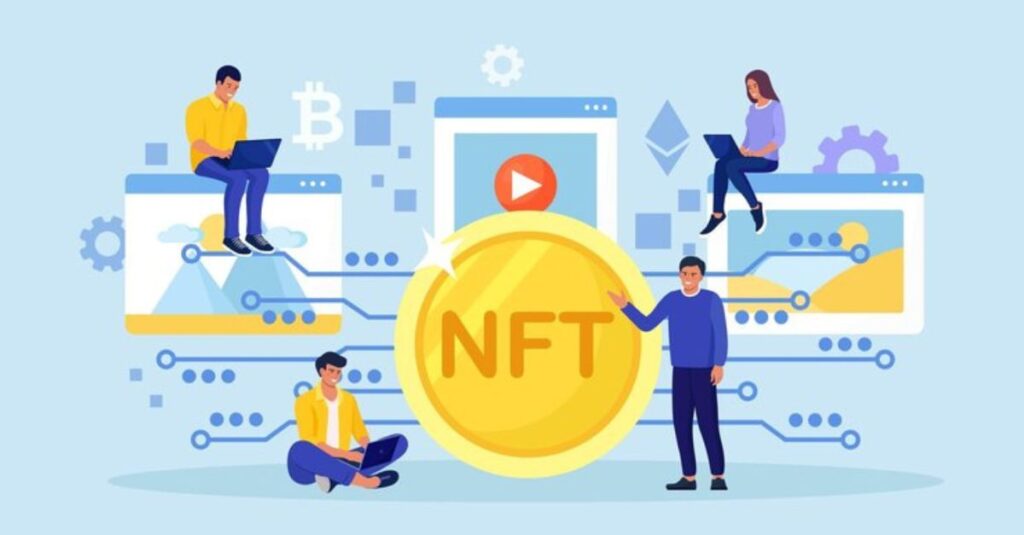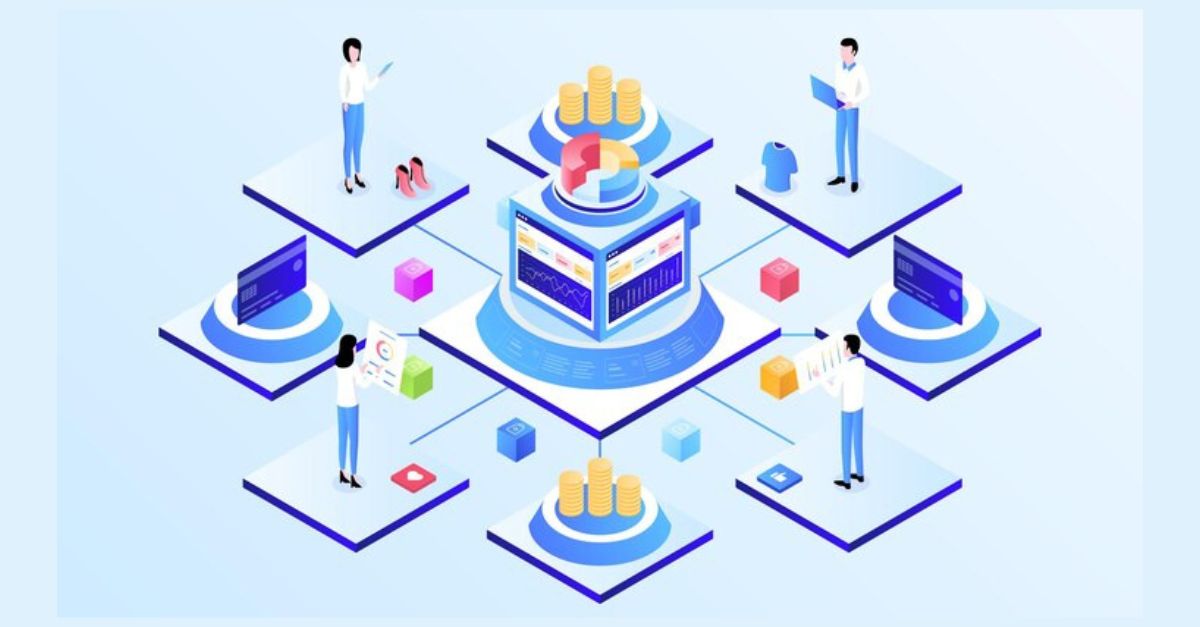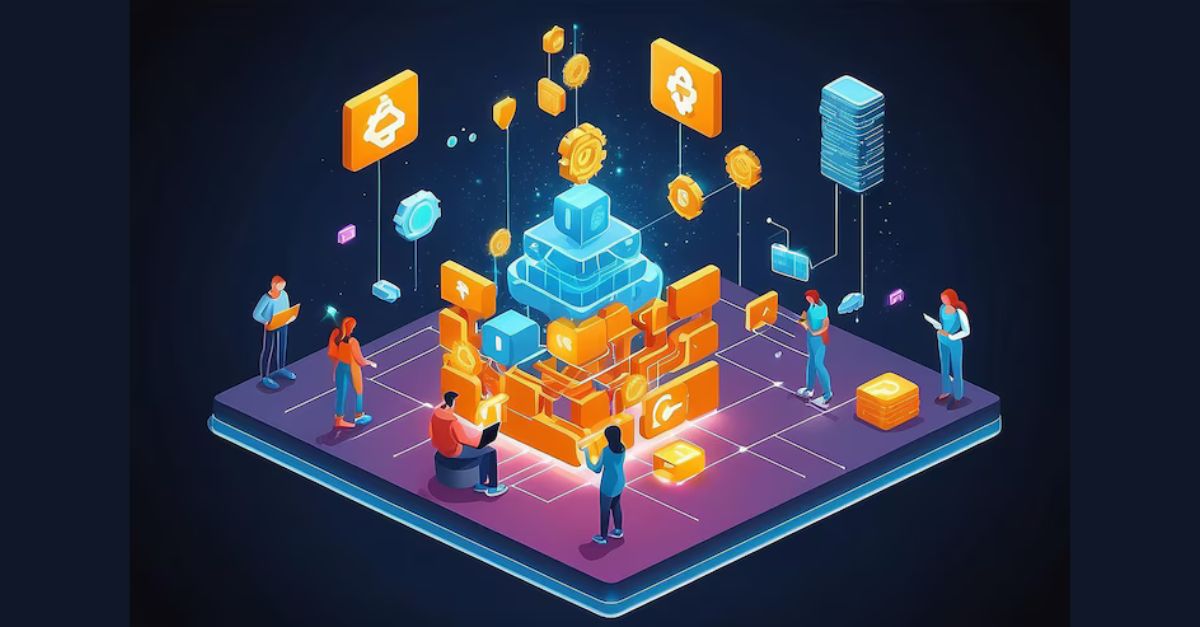
The world of blockchain technology has birthed many innovations, but perhaps none as intriguing and transformative as Non-Fungible Tokens (NFTs). NFTs have completely changed how we view and exchange digital assets, opening up new opportunities for investors, collectors, and creators alike.
In this blog, we will delve into the phenomenon of NFT marketplaces, exploring their workings, key players, trends, opportunities, and why having your own marketplace could be a game-changer.
What are NFTs and how do they work?
NFTs are distinct digital assets that are kept on a blockchain and serve as ownership or authenticity proof for a certain object or piece of content. Unlike cryptocurrencies such as Bitcoin or Ethereum, which are fungible and can be exchanged on a one-to-one basis, NFTs are indivisible and non-interchangeable. Cryptography technology makes each NFT unique by guaranteeing its provenance and scarcity.
Key to the functioning of NFTs is the underlying blockchain technology, which serves as a decentralized ledger recording the ownership and transaction history of each token. This transparency and immutability provide assurance to buyers regarding the authenticity and ownership of NFTs, eliminating the risk of fraud or duplication.
Key players in the NFT Marketplaces:
Several platforms have emerged as dominant players in the burgeoning NFT marketplace landscape. These include established platforms such as OpenSea, Rarible, and Foundation, as well as specialized platforms catering to specific niches like art, gaming, and collectibles.
OpenSea, for instance, is one of the largest decentralized marketplaces for NFTs, offering a wide range of digital assets including art, domain names, and virtual real estate. Rarible distinguishes itself with its decentralized governance model, allowing users to participate in platform decisions through governance tokens. The foundation focuses on supporting emerging artists, providing a curated platform for buying and selling digital art.
Why have your own marketplace?
While participating in existing NFT marketplaces offers visibility and accessibility, having your own marketplace presents unique advantages. By owning a personal NFT marketplace, creators gain greater control over branding, pricing, and curation of their digital assets. This autonomy allows for more personalized engagement with collectors and fans, fostering a sense of community and loyalty.
Furthermore, having your own marketplace opens up opportunities for monetization beyond simple sales. Creators can implement innovative features such as royalties, allowing them to earn a percentage of secondary sales, or fractional ownership, enabling investors to purchase shares of high-value assets.
Trends in NFT Marketplaces:
The landscape of NFT marketplaces is constantly evolving, driven by changing consumer preferences and technological advancements. One prominent trend is the expansion of NFTs beyond digital art into realms such as virtual real estate, gaming assets, and the metaverse. Platforms like Decentraland and The Sandbox offer virtual environments where users can buy, sell, and develop digital properties and experiences.
Additionally, NFT marketplaces are integrating social features to enhance user engagement and community building. Features like comments, likes, and follows enable creators and collectors to interact with each other, fostering a sense of belonging and collaboration within the community.
Opportunities in NFT Marketplaces:
The growing popularity of NFTs presents a myriad of opportunities for creators, investors, and entrepreneurs. Niche market exploration is one such opportunity, with NFTs extending beyond traditional art into domains such as sports memorabilia, music royalties, and fashion collectibles. Collaborations with artists, celebrities, and brands offer another avenue for growth, leveraging existing fan bases and brand equity to drive sales and engagement.
Moreover, the development of innovative use cases for NFTs opens up new possibilities for monetization and value creation. Smart contracts can be programmed to automate royalty payments to creators, ensuring fair compensation for their work. Fractional ownership allows investors to pool their resources and collectively purchase high-value assets, democratizing access to exclusive content and experiences.
Conclusion:
In conclusion, the potential of NFT marketplaces is vast and ever-expanding, offering a glimpse into the future of digital ownership and commerce. By understanding the workings of NFTs, identifying key players, and staying abreast of emerging trends and opportunities, participants can position themselves to capitalize on this burgeoning ecosystem. Whether as creators, collectors, or investors, there has never been a better time to unlock the potential of NFT marketplaces and shape the future of digital ownership.


